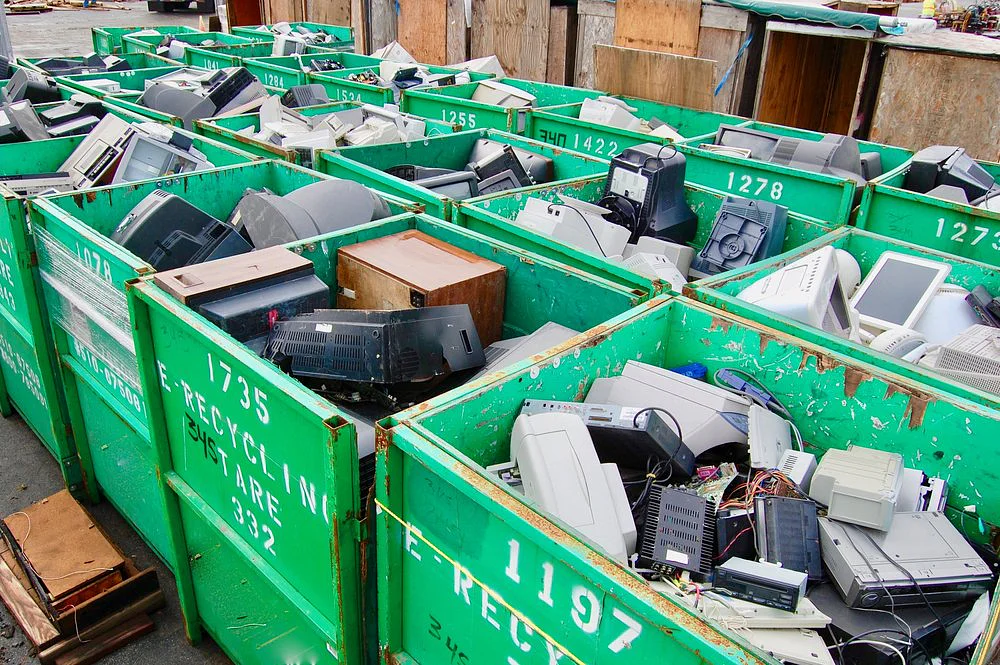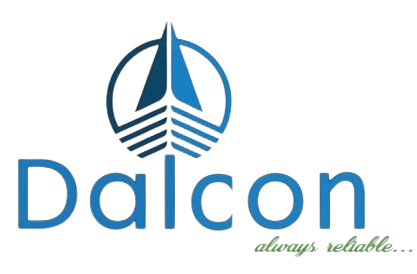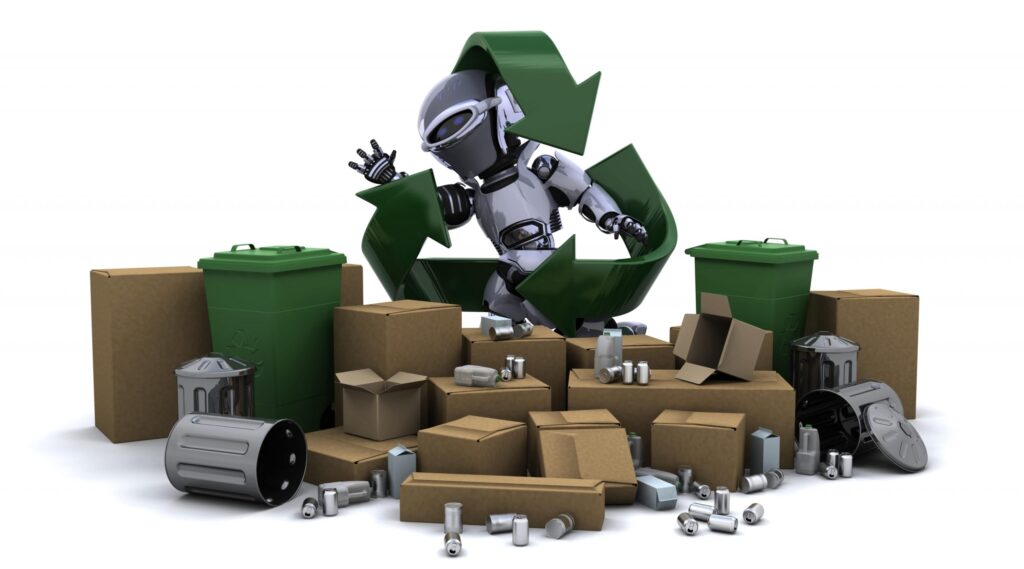Transforming E-Waste into Tomorrow's Materials
E-waste management involves the proper disposal, recycling, and repurposing of electronic waste to reduce environmental harm.
Our Services
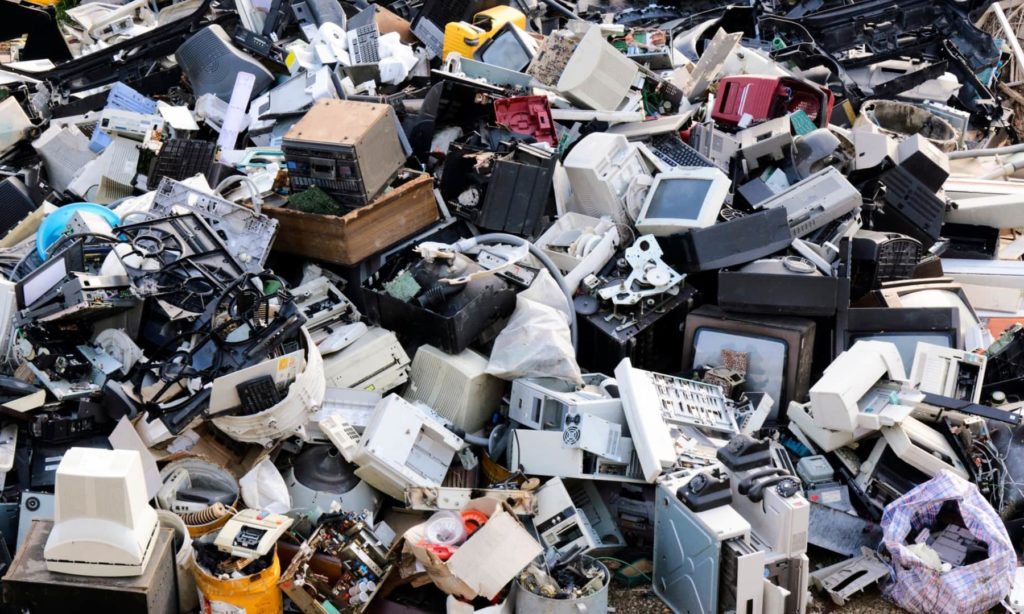
ELECTRICAL & ELECTRONIC EQUIPMENTS
Electrical and electronic equipment waste (e-waste) includes discarded devices like computers, phones, and appliances, often containing hazardous materials. E-waste includes old, broken, or obsolete electrical and electronic equipment (EEE) like computers, mobile phones, and appliances. Improper disposal can release toxic substances, harming the environment and human health, while recycling helps conserve resources and reduce pollution.Proper recycling and disposal are essential to prevent environmental harm and recover valuable resources.. These wastes contain hazardous substances like lead, mercury, and cadmium, which can harm the environment if not disposed of properly. Additionally, e-waste holds valuable materials like gold, silver, and copper that can be recovered through recycling.
HARD DISK SHREDDING AND DATA WIPING
Hard disk shredding and data wiping ensure complete destruction of sensitive data, preventing unauthorized access.Proper disposal of e-waste protects both privacy and the environment.Hard disk shredding physically destroys drives, making data recovery impossible, while data wiping securely erases information for reuse. Both methods are crucial for preventing data breaches, complying with privacy regulations, and reducing electronic waste responsibly.Hard disk shredding involves mechanically destroying hard drives into tiny fragments, ensuring data is permanently unrecoverable. Data wiping, on the other hand, uses advanced software to overwrite existing data multiple times, making it impossible to retrieve.
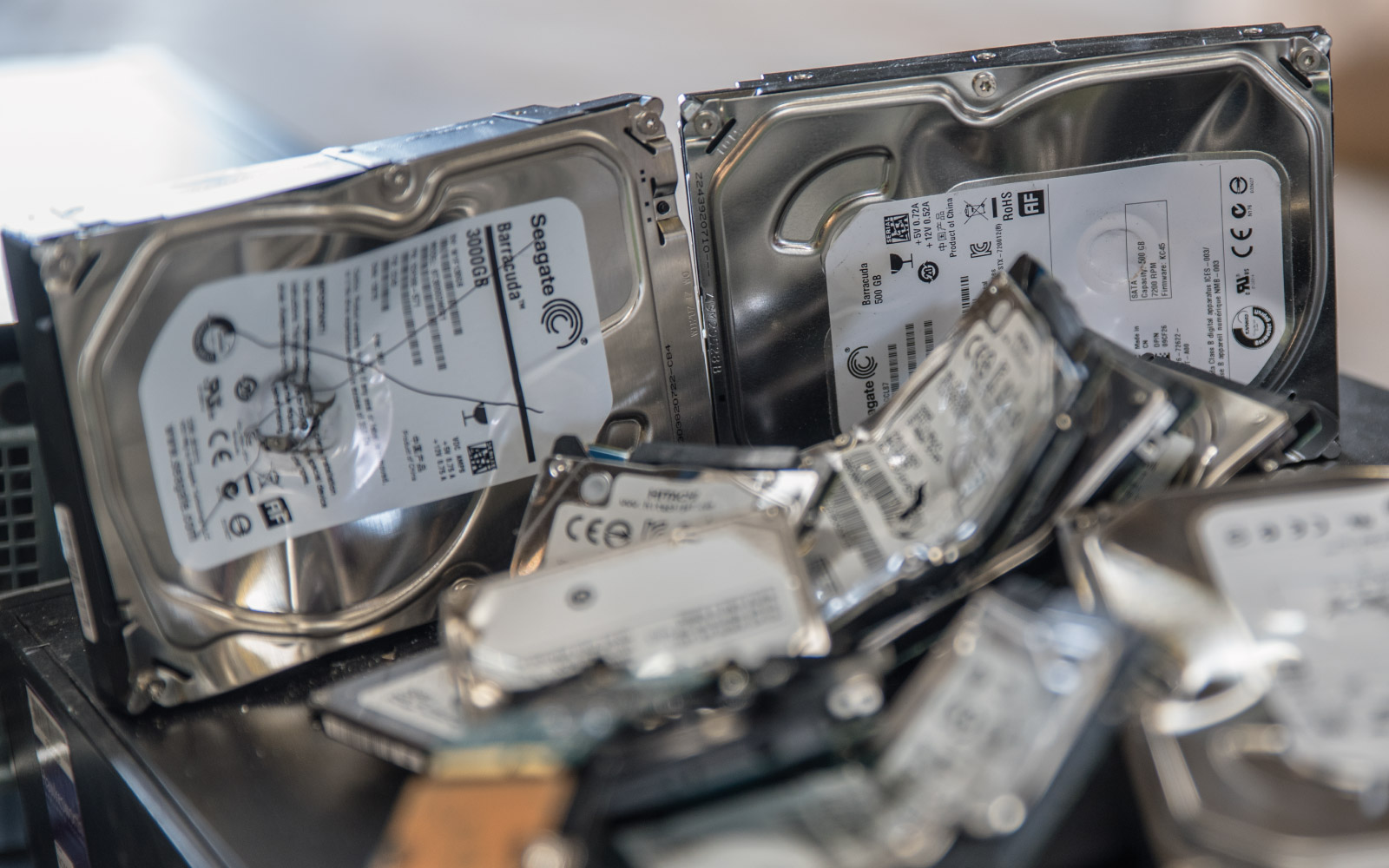
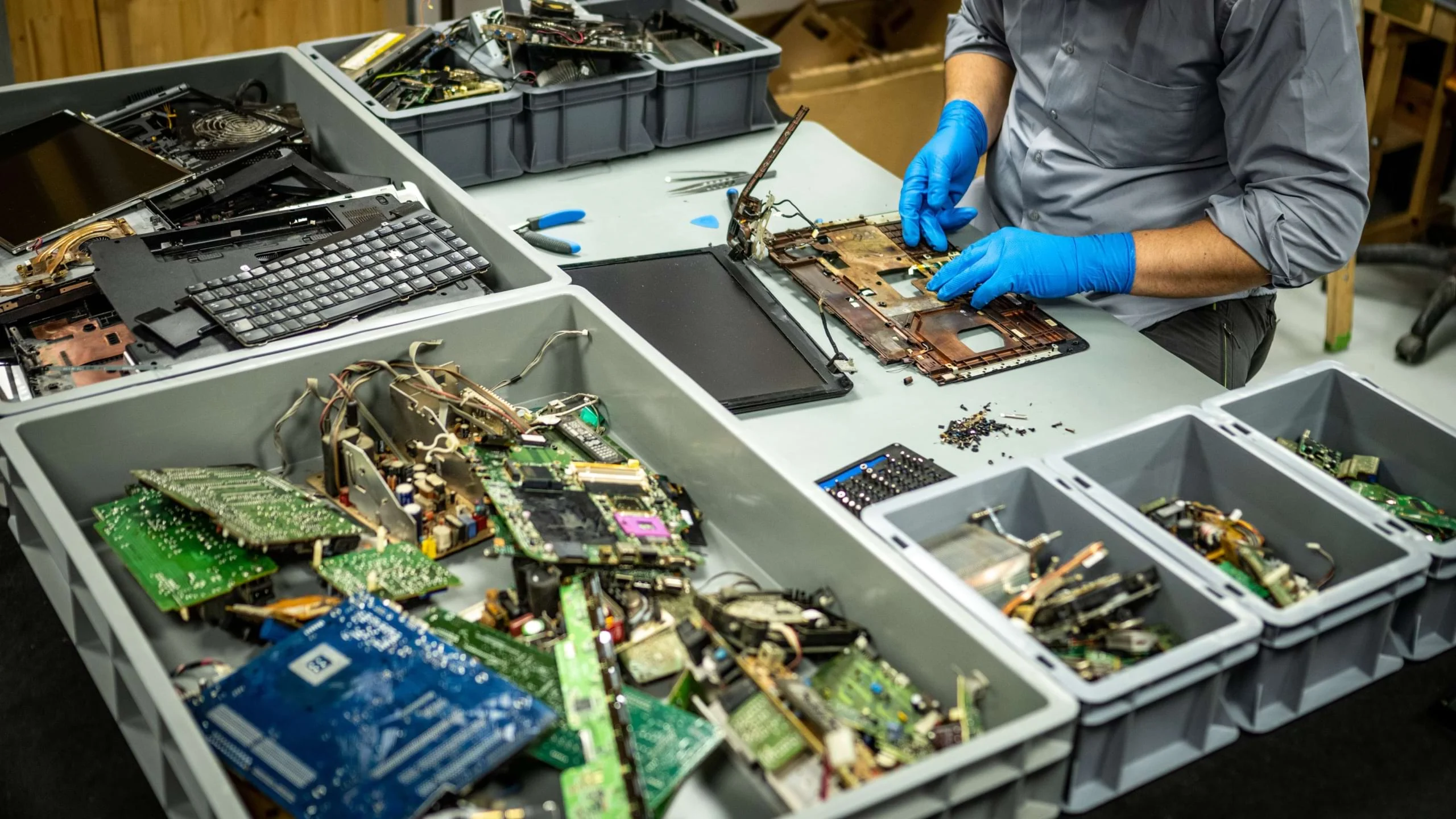
IT Asset Disposition
IT Asset Disposition (ITAD) waste refers to the secure and environmentally responsible disposal of outdated or unwanted IT equipment. Proper ITAD practices ensure data security, regulatory compliance, and e-waste recycling to minimize environmental impact.T Asset Disposition (ITAD) waste involves the secure decommissioning, recycling, or repurposing of outdated IT equipment such as computers, servers, and networking devices. Proper ITAD practices help prevent data breaches, comply with environmental regulations, and reduce e-waste through responsible recycling or refurbishment. By partnering with certified ITAD providers, businesses can ensure the safe disposal of assets while maximizing value recovery and minimizing their environmental footprint.
BATTERIES
Battery waste poses serious environmental risks due to toxic chemicals like lead, mercury, and cadmium. Proper recycling prevents pollution and conserves valuable resources.Battery waste is a growing environmental concern as discarded batteries contain hazardous materials like lead, mercury, and cadmium, which can contaminate soil and water if not disposed of properly. Recycling batteries helps prevent pollution, reduces landfill waste, and conserves valuable raw materials like lithium and cobalt, promoting a more sustainable future.When batteries end up in landfills, they contribute to soil degradation and water contamination, leading to long-term ecological damage. Recycling and proper disposal of batteries not only prevent hazardous pollution
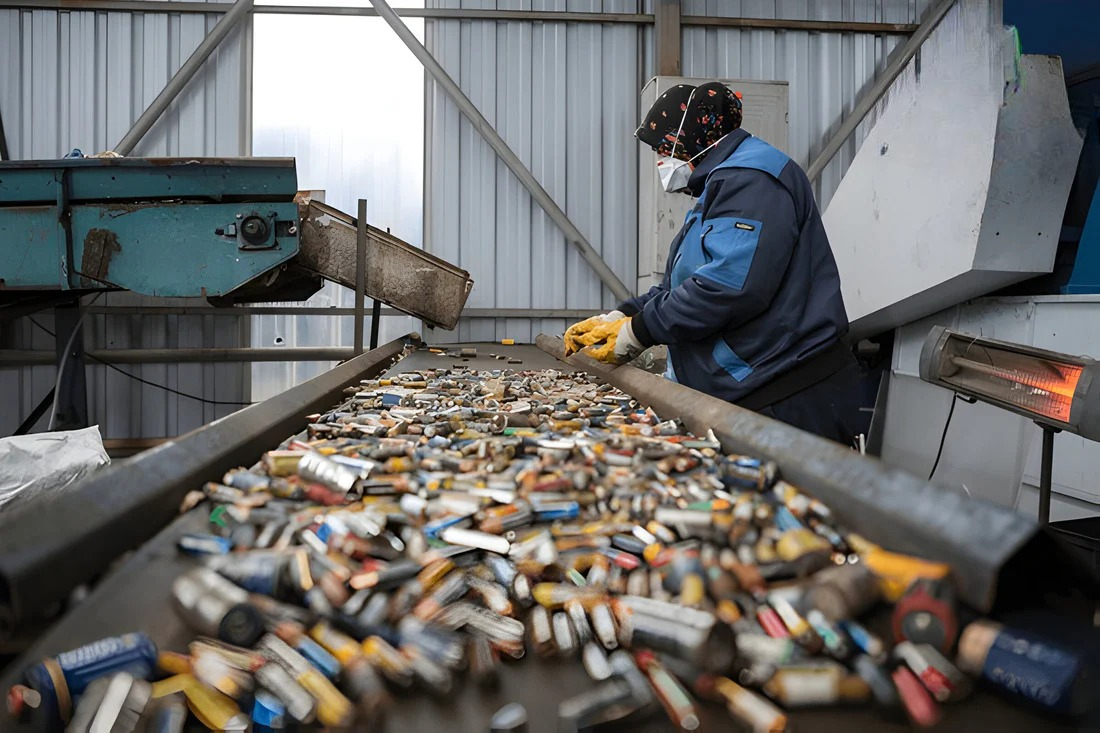
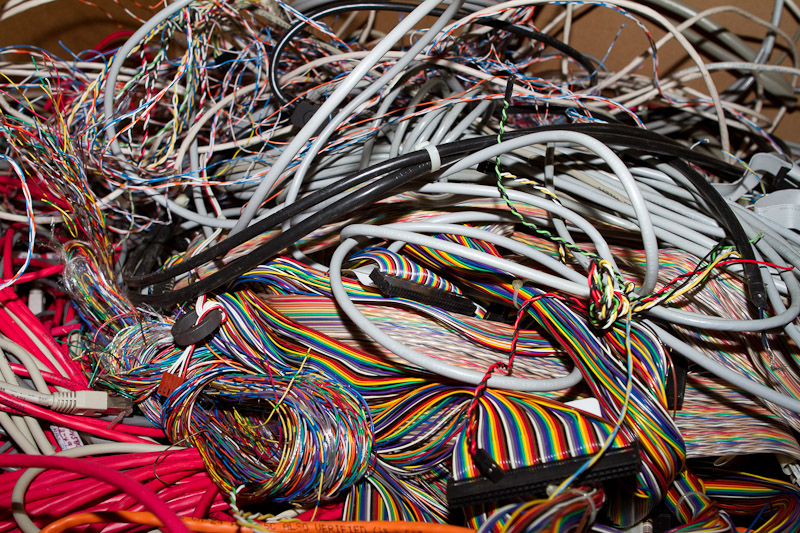
CABLES RECYCLING
Cable recycling helps reduce electronic waste by recovering valuable materials like copper and aluminum, minimizing environmental impact. Proper recycling prevents harmful chemicals from polluting soil and water.Cable recycling is an essential process that helps recover valuable metals like copper, aluminum, and steel from discarded electrical wires and cables. Instead of letting these materials end up in landfills, recycling reduces environmental pollution, conserves natural resources, and supports sustainable manufacturing. Proper recycling also prevents hazardous substances, such as plastic insulation and coatings, from releasing toxic chemicals into the air, soil, and water.
DOOR TO DOOR RECYCLING
Door-to-door recycling ensures convenient waste collection right from your doorstep, promoting sustainability and reducing landfill waste. Door-to-door recycling is an efficient and eco-friendly waste management solution that collects recyclables directly from homes, making it easier for residents to participate in sustainability efforts. This service helps reduce landfill waste, conserves natural resources, and minimizes environmental pollution. By segregating materials like paper, plastic, glass, and metal at the source, it ensures proper recycling and repurposing, ultimately contributing to a cleaner and greener community. Additionally, it fosters environmental awareness and responsibility among households, encouraging a culture of waste reduction and resource conservation.
